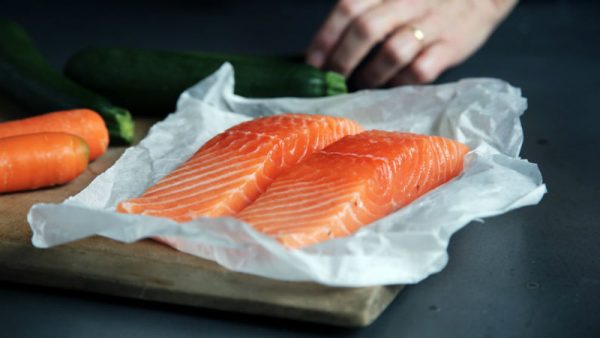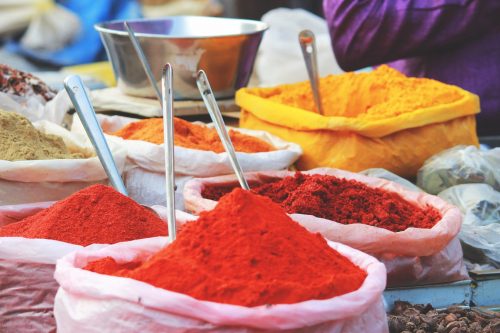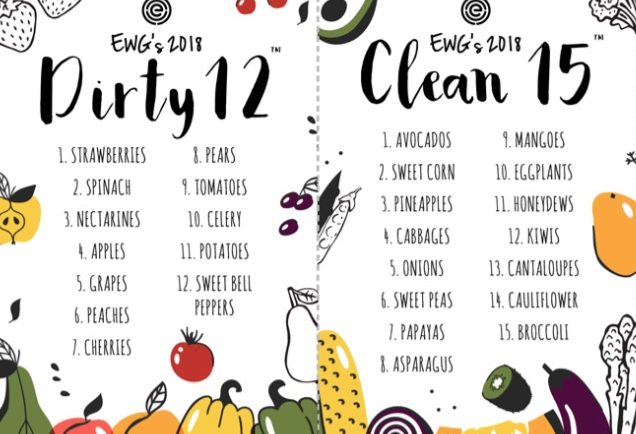-
Are you getting enough calcium? [calculator]
Calcium is a mineral that the body needs for numerous functions, including building and maintaining bones and teeth, blood clotting, the transmission of nerve impulses, and the regulation of the heart’s rhythm.The recommended intake as per the National Academy of Sciences is: 1,000 milligrams/day for those age 19 to 50 1,200 milligrams/day for those age 50 or over 1,000 milligrams/day for pregnant or lactating adult women Click here for calculator: This will walk you through the foods you eat, and the amount of calcium you get on a daily basis. It will then tell you if you are deficient. The body gets the calcium … From your food:Dairy products, dark leafy…
-
Good Food on a Tight Budget
Think eating healthy is for the rich? Think again. This is a wonderful download from the Environmental Working Group Find it here: Good Food on a Tight Budget
-
Fat Deficiency Symptom Checker
Too little fat in your diet? Say what? Yes, you, might be getting too little. Not eating enough fat can create all sorts of problems including, believe it or not, making you fatter. [more on that later] Even the US Dietary Guidelines Advisory Committee has changed their recommendations on fat intake. It no longer includes an upper level of total fat intake AND even more importantly, it doesn’t recommended low fat foods or diets for obesity prevention. Yo udefinitely want to avoid the bad fats – transfats, overheated fats, hydrogenated fats [read labels, limit fried and grilled food, and get rid of the margerine and processed meats. – but you need the…
-
A Protein Rule of Thumb
Check with your supervising health professionals for direction on how much protein you should have in your diet a day. PROTEIN CALCULATOR Click here to discover how much protein you need daily When you eat foods that contain protein, they get broken down into basic units, called amino acids. Think of them as building blocks – like legos. These building blocks form muscles, blood cells, and the heart, brain and hormones and glands.. Proteins are needed to build our immune system. To put it simply, without adequate protein you would fall apart and be as weak as water and very ill. Break up your intake throughout the day. [Do not…
-
Restaurant Strategies.
Let’s face it, everybody loves eating at a restaurant now and then, but it seems almost impossible to make good food choices when faced with so many options. Here are some suggestions for eating well when you’re eating out: Avoid buffets and other all-you-can-eat restaurants Don’t go when you’re starving; eat a small snack first Limit alcoholic beverages Keep your hands out of the breadbasket, or even better, ask the server not to bring it Go for the salad bar Order items that have been prepared healthfully: steamed, broiled, roasted, etc. Don’t be afraid to ask for substitutions If portions are large, split yours with someone Keep low-glycemic foods in…
-
A Hydration Strategy
AIM FOR: 64 ounces a day [or as recommended by your health professional] [more if you are sweating, drinking alcohol or coffee] DOWNLOAD AND PRINT HYDRATION STRATEGY HERE WHY DRINK WATER? Water is essential to life. It keeps the blood clean and flowing. It is necessary for the utilize and absorption of nutrients. Without water we would literally drown in our own poisonous metabolic wastes. If you don’t drink enough water you you cannot regulate your body temperature. It lubricate Joints. It Reduce asthma attacks. Reduce risk of breast cancer and colon cancer Plumps the skins [slows signs of aging] Reduces constipation. Reduces kidney stones Water is a natural appetite suppressant.…
- Exercise/Movement, Food/Drink, Gut Health, Health Strategies, Moods/Emotions, Sleep/Naps, Stress Management, Supplements, Uncategorized
Low Energy? How to stoke it.
You have an engine inside your cells that generates energy. This engine is called “the mitochondria.” This is where the air you breath and the nutrients you eat meet to create ENERGY. If your mitochondria is not working well, you feel depleted and you will age faster. A mitochondrial dysfunction might produce symptoms such as chronic fatigue, sluggish metabolism, digestive disorders, memory loss, brain fog, blood sugar irregularities, and chronic pain. Even a predisposition to cancer is related to mitochondrial function. When working properly, mitochondria can effectively kill off the damaged, potentially cancerous cells we produce every day, replacing them with healthy cells. Here are some simple ways to boost…
-
Recipes Fresh Fruits and Veggies
Recipes for Fresh Fruit and Vegetables Month!
-
Good Bug Bad Bugs
-
Super-Spices
Spices and herbs not only make your food taste better, but they can support your health. Sea salt: A little bit of salt goes a long way. Too much can be damaging to your kidneys and heart. When you do use salt; use sea salt. It has less sodium and more trace minerals than refined salt. Black pepper: Pepper increases the production of hydrochloric acid, thereby improving digestion and reducing flatulence. Vinegar: Vinegar is a good base for healthy salad dressings. It has been shown to slow down the conversion of starchy foods into glucose, thus minimizing the chances of a spike. Garlic: Garlic is a natural antibiotic. The body…



















